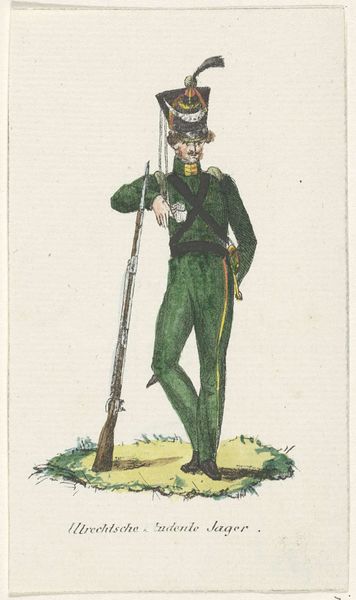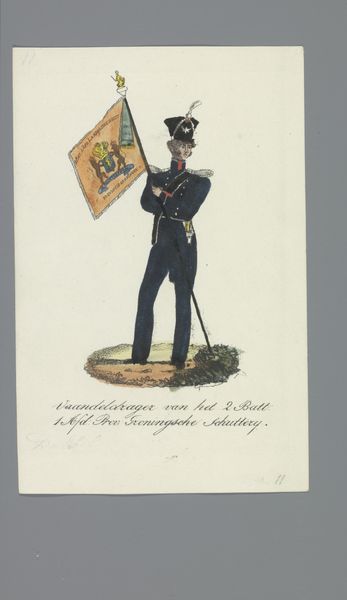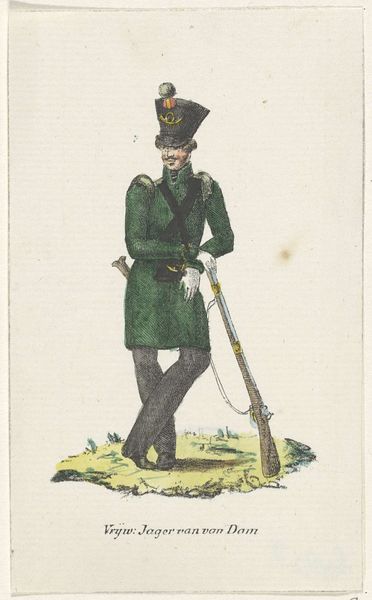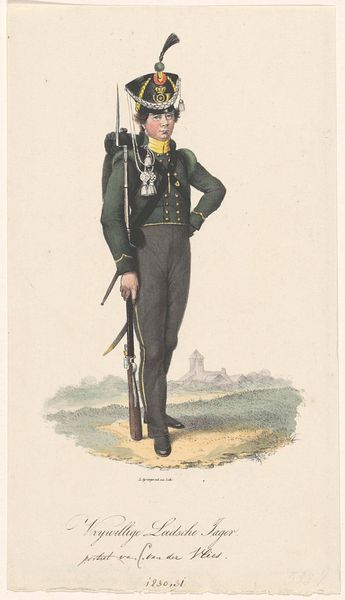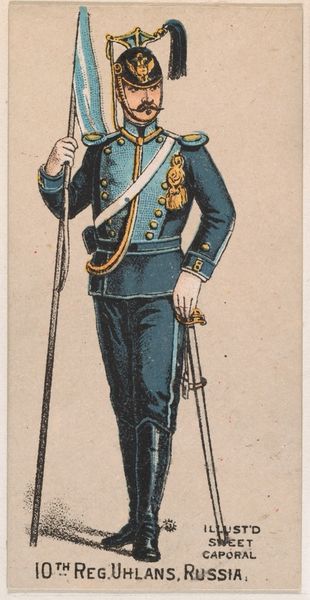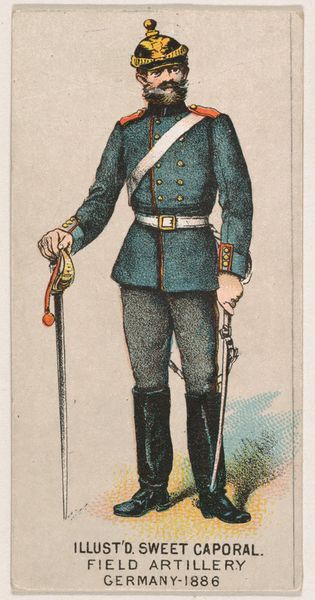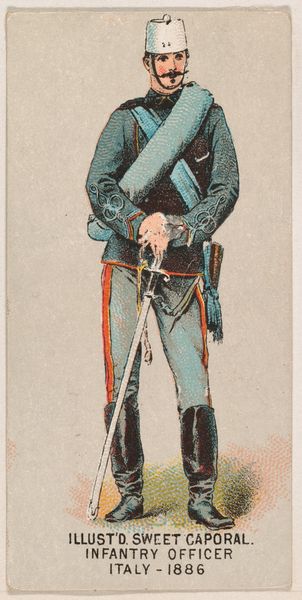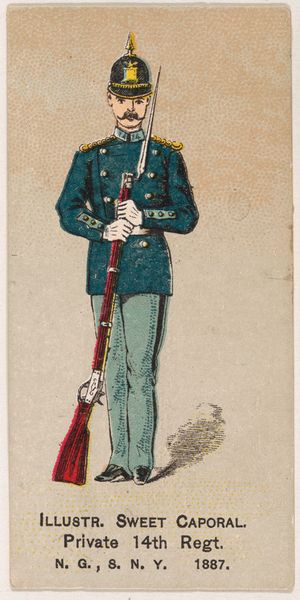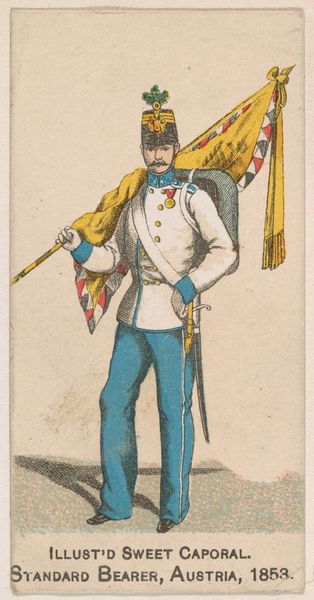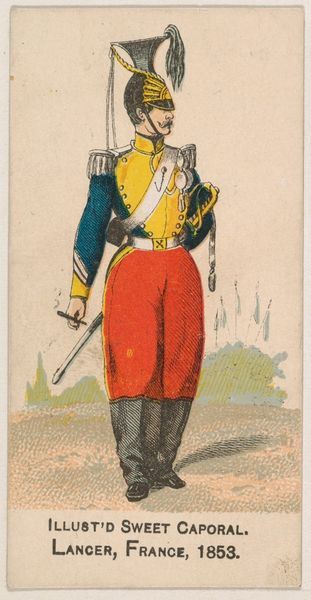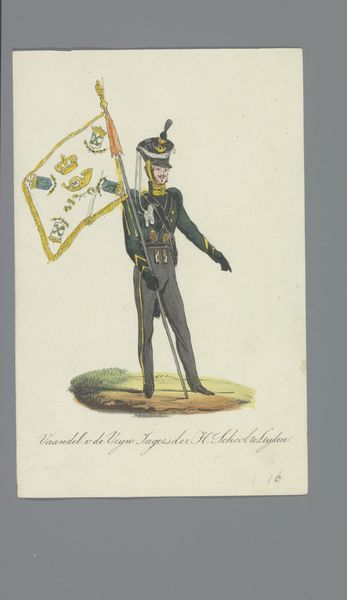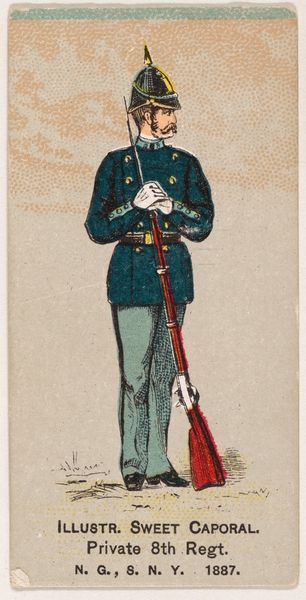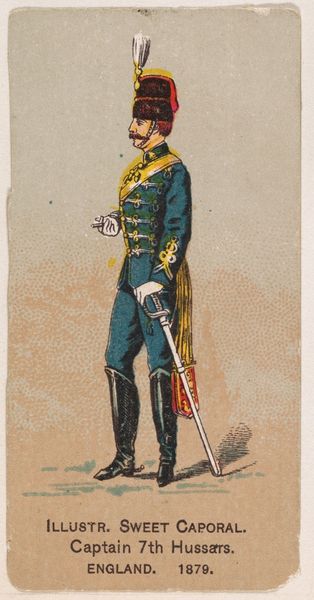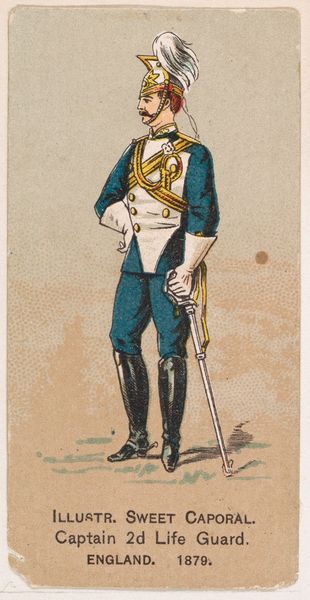
drawing, watercolor
#
portrait
#
drawing
#
traditional media
#
watercolor
#
costume
#
watercolour illustration
#
history-painting
Dimensions: height 223 mm, width 147 mm
Copyright: Rijks Museum: Open Domain
This print of a voluntary Jager, or rifleman, of Leiden University was made by Willem Bal around 1830. It is created using lithography, a printmaking process that relies on the simple principle that oil and water don't mix. The design is drawn on a flat stone with a greasy crayon, then treated with acid to fix the image. When the stone is inked, the ink adheres only to the drawn areas, which are then transferred to paper under pressure. The vivid colours are added using separate stones, each inked with a different hue. The charm of this print lies in the textures achieved through lithography. The subtle gradations and soft lines give the figure a lifelike presence, while the crisp details of the uniform and flag showcase the precision possible with this technique. Lithography democratized image-making. It enabled mass production and distribution of images, making art more accessible and influencing visual culture of the 19th century. By focusing on the materials and processes involved, we can appreciate how art is interwoven with broader social and technological developments.
Comments
No comments
Be the first to comment and join the conversation on the ultimate creative platform.
